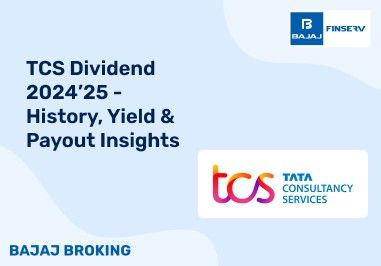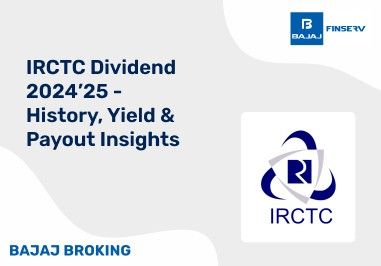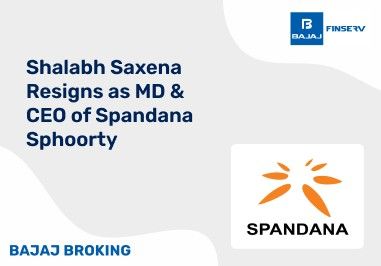Understanding who can open a Demat account in India is crucial for anyone seeking to participate in India’s dynamic capital markets. This blog aims to provide a comprehensive overview of Demat accounts, how they function, and the eligibility criteria for opening such an account in India.
What is a Demat Account?
A Demat account is an electronic form of holding securities, eliminating the need for physical share certificates. It serves as a centralised depository where investors can hold, monitor, and transact in various financial instruments, including equities, government securities, bonds, mutual funds, and exchange-traded funds (ETFs). By converting physical securities into electronic form, a Demat account simplifies the trading and investment process, making it convenient, secure, and efficient.
Why do you need to open a Demat Account?
A Demat account functions like a virtual bank account for securities. When an investor purchases shares or other financial instruments, the securities are credited to their Demat account. Conversely, when they sell securities, the corresponding units are debited from their account. This electronic transfer of securities ensures seamless and prompt settlement of trades, eliminating the risks and delays associated with physical share certificates.
A Demat account is connected to the investor’s trading account and helps with carrying out transactions. It enables investors to buy and sell securities in electronic form through stock exchanges, such as the National Stock Exchange (NSE) and the Bombay Stock Exchange (BSE), as well as participate in other investment avenues like initial public offerings (IPOs) and rights issues.
Who Can Open a Demat Account in India?
A Demat account can be opened by various categories of individuals, including:
- Resident Individuals: Any Indian citizen residing in India can open a Demat account. This includes salaried individuals, self-employed professionals, homemakers, students, and retirees.
- Non-Resident Indians (NRIs): NRIs possessing a valid Indian passport or Overseas Citizenship of India (OCI) card can open a Demat account. They can choose between repatriable (NRE) and non-repatriable (NRO) Demat accounts based on their investment objectives.NRIs, who hold a valid Indian passport or Overseas Citizenship of India (OCI) card, are eligible to open a Demat account. NRIs can hold both repatriable (NRE) and non-repatriable (NRO) Demat accounts, depending on their investment objectives.
Additional Read: NRI Demat Account in India
- Hindu Undivided Families (HUFs): HUFs, consisting of a family headed by a Karta (the eldest male member), can open a Demat account in their collective name. This allows HUFs to invest in securities collectively and enjoy the benefits of ownership.
- Minor Individuals: A Demat account can also be opened on behalf of a minor by their parents or legal guardians. However, minors cannot directly operate the account until they reach the age of majority.
- Corporate Bodies: Corporates, such as companies, partnerships, and registered societies, can open Demat accounts to hold securities for their investment or business purposes.
It is important to note that the person or entity who opens a Demat Account requires fulfilling certain documentation and procedural requirements. These typically include identity proof, address proof, and a Permanent Account Number (PAN) card. The specific documents may vary depending on the category of the applicant.
Additional Read: Income Tax Implications on Demat Account
Benefits of opening a demat account
Now, let’s explore the eligibility criteria and the process involved.
For individual Indian citizens, the process of opening a Demat account is relatively straightforward. They need to be at least 18 years old and have a valid Permanent Account Number (PAN). PAN is a unique identification number issued by the Indian Income Tax Department, which is essential for financial transactions in India. The applicant must also provide proof of address, such as a valid passport, voter ID card, driving license, or Aadhaar card, which is a biometric identification card issued by the Unique Identification Authority of India (UIDAI).
Non-resident Indians (NRIs) who wish to open a Demat account in India have specific guidelines to follow. NRIs are required to possess either an NRE (Non-Residential External) or NRO (Non-Residential Ordinary) bank account in India. NRE accounts are for holding and managing foreign income in India, while NRO accounts are for holding and managing income earned in India. NRIs also need to designate their Demat account as a Non-Resident Ordinary (NRO) Demat account.
For HUFs, partnership firms, LLPs, and corporate entities, the process involves additional documentation. They need to provide their registration certificate, partnership deed, LLP agreement, or incorporation documents, along with the PAN and address proof of the authorised signatory.
Once the eligibility criteria are met and the required documents are in order, you can approach a registered depository participant (DP) to open a Demat account. DP is an intermediary authorised by the depository (National Securities Depository Limited or Central Depository Services Limited) to offer Demat services. Several banks, financial institutions, and stockbrokers act as DPs in India.
You will need to fill out an account opening form provided by the DP and submit the necessary documents. The DP will conduct the necessary verification and authentication processes before approving the Demat account. Once the account is opened, you will receive a unique Demat account number, which acts as the electronic identity for holding securities.
It’s worth noting that while there is no limit on the number of Demat accounts an individual can open, maintaining multiple accounts may incur additional charges. Moreover, Demat accounts can be opened with different DPs, providing investors with the flexibility to choose the DP that best suits their needs.
In Summation
A Demat account has become an indispensable tool for individuals seeking to participate in India’s thriving capital markets. Its electronic format offers convenience, security, and flexibility, making it the preferred choice for holding and transacting in securities. Whether you are a resident Indian, an NRI, an HUF, a minor, or a corporate entity, you can open a Demat account in India and leverage the opportunities presented by the financial markets.
It is essential to understand the eligibility criteria and comply with the required documentation to embark on your investment journey seamlessly. By opening a Demat account, you gain access to a world of investment possibilities and pave the way for a more streamlined and efficient investment experience.
Disclaimer: Investments in the securities market are subject to market risk, read all related documents carefully before investing.
This content is for educational purposes only. Securities quoted are exemplary and not recommendatory.
For All Disclaimers Click Here: https://www.bajajbroking.in/disclaimer













